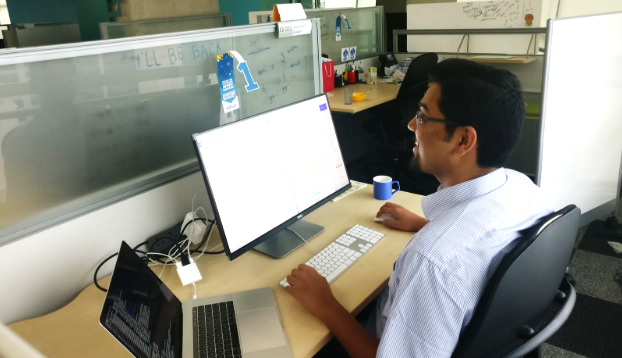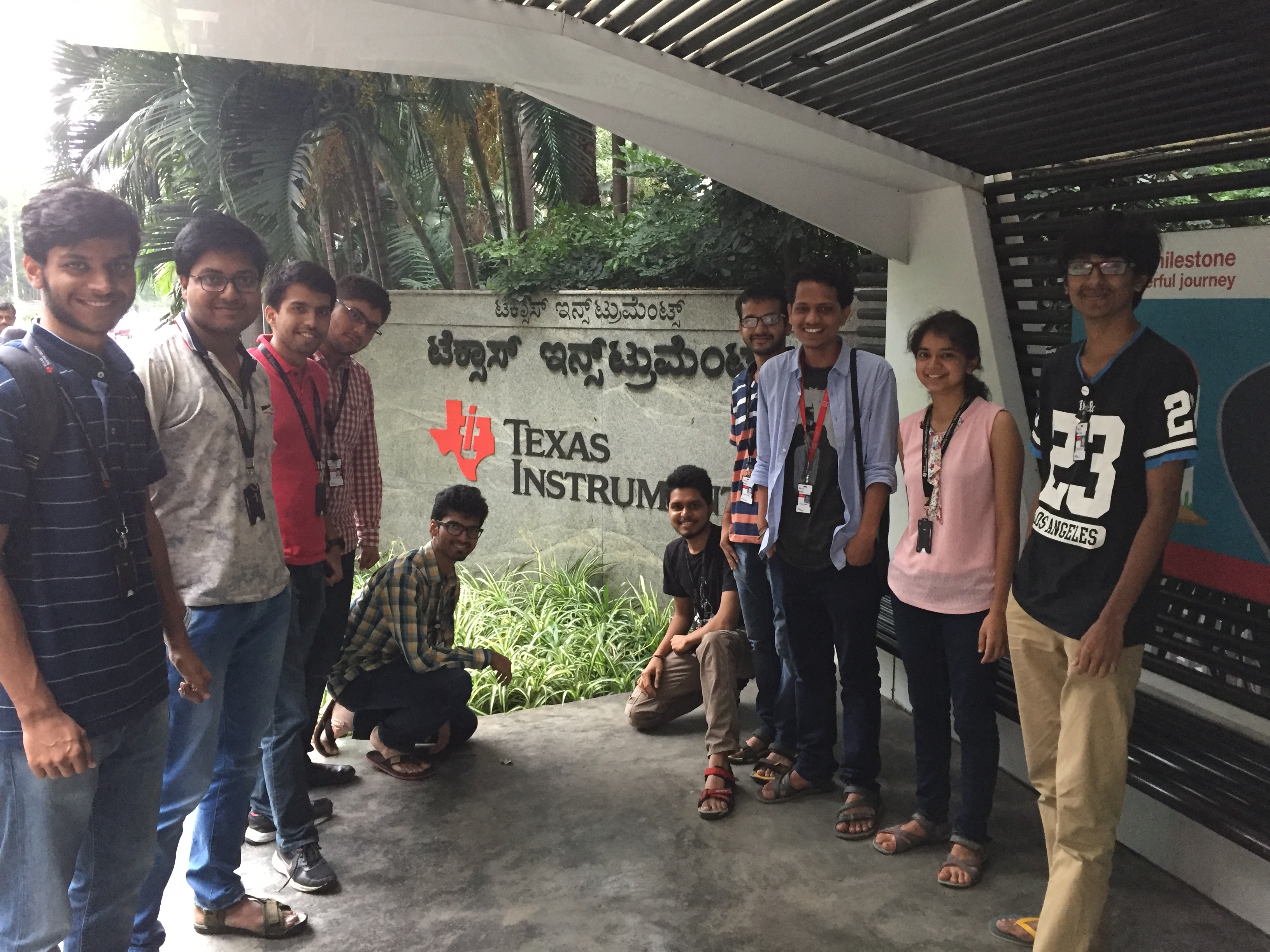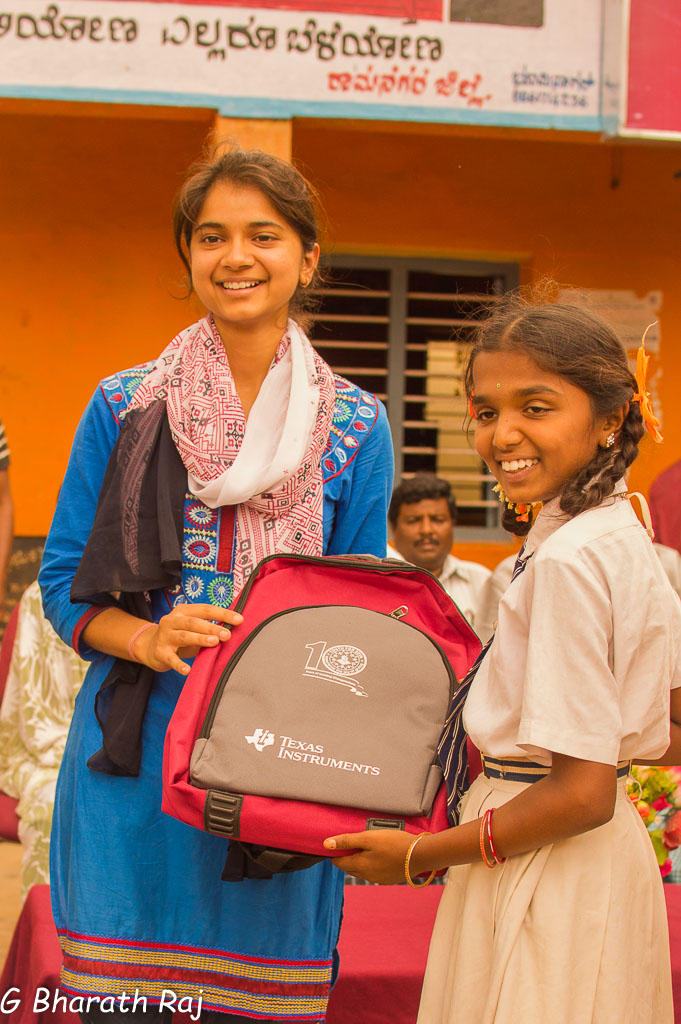

Body of IITR

The internship recruitment process for Texas Instruments is pretty similar to that of other companies. It consists of a preliminary test followed by two interviews. Prospective interns can apply under any of the three profiles of analog engineer, digital engineer and software engineer. One can opt for hardware and/or software profiles in the test. The hardware section usually consists of questions on the concepts of analog and digital circuits as well as questions testing general aptitude. In the digital section, apart from the usual questions on K-maps and digital logic, most of the questions focus on the mosfet implementation of gates. The software part, however, focusses on usual coding questions followed by a common aptitude section.
For more information on questions, as well as some reference materials, you can visit the following link: https://docs.google.com/document/d/1FCvqKO0Pp16vOhasx3EJdtPHiMix-3Tobi5yrLri9Q8/edit (Courtesy: Seniors)
After clearing the online test, there is a technical interview round, for both the analog and digital domain (or coding domain, based of the profile applied for). Based on your performance in the test, you can be eligible for both the rounds. In the interview, they mainly try to check your concepts and logic. They may try to confuse you on some concepts, as well as help you out at some places by giving hints. The interviewer might also offer you a cookie if you are lucky!
The HR interview round follows the technical round. Most of the discussion in my HR interview revolved around my second year summer project on Embedded Systems, what I did as part of it, where can it be used and what features can be added to make it more useful. The interviewer looked quite satisfied with my answers. Looking at my resume, she told me that you will enjoy a lot in TI. The result came in around 4 hours. An internship offer letter was later delivered to us along with a starters kit consisting of a pen, an Intex fitrist and a T-Shirt. Texas Instruments is a dream company for many electrical and electronics engineers. If you keep your logic and concepts clear, (with a bit of luck) you can easily make it through the selection process. Moreover, TI does not believe much in any CGPA criteria and anyone having CG > 7 can sit in the online test.
Integrity. Commitment. Innovation.
These words are the foundations of work culture at Texas Instruments. The company tries to instill these values in each employee. In fact, they even conduct a fun workshop on mindsets and behaviors, filled with a lot of group activities and tasks. One-day-trainings were organised on Perl, Verilog, Advanced Unix, C and CCS Architecture during the first week to give students a head start in their projects. You could choose and attend the ones which seemed helpful to your project.
Based on my interaction with various other interns, I can say that most of the interns are given work related to designing, testing/verification or doing some initial work on a new project/new methodology. Each intern gets his or her individual project. One of my friends was given a new software which had been recently launched in the market and was asked to explore how it can be used by the company. Another one had to design components in analog domain. Everyone gets a mentor to guide them in their projects. Mentors also give feedback during the mid-term and final evaluation, which plays an important role in deciding whether you will be offered a PPO or PPI.
I was a part of the backplane MCU (Microcontroller Unit) team, particularly the Standard Cells team. The project helped me gain in-depth knowledge of the working and structure of flops and the reasons they can fail in different conditions. I had to work on the robustness of the flops. Later, I had to develop a framework which detects the failure cases in a flop and corrects itself. I worked from around 9-6 but the timings were usually flexible. However, for girls, there is a restriction on the timings. So, I could not stay in the TI campus after 8 p.m. because of the Karnataka state government rules on women security. The weekends were quite fun, and were usually spent hanging out with friends at places in and around Bangalore.
Depending on your project, you may find the work interesting or boring. But the upside is one can always ask the mentor to modify the work according to his interests. Also, since there are so many experienced people around, you can learn a lot just by interacting with them. Everyone is quite humble and always willing to help.
During the internship, TI organises a workshop on ‘Presentations with finesse’ in which they teach presentation skills like maintaining the correct body language, introducing yourself effectively, among other skills. Apart from this, we attended an IEEE conference, had power lunch with one of the most senior members of the team, and went out for team outings. I also went to a government school on the outskirts of Bangalore when I volunteered in the Back to School campaign.

TI gives its interns free access to its entertainment and sports facility area - Texin. It offers a plethora of recreational activities like music, carrom, snooker, TT, badminton, meditation, etc. It’s quite fun to go there and relax for some time when you get tired of your work.
Overall, it is quite an enriching experience to know and be around people who explore in the industrial domain. Some of the most important things I learnt on this internship are: